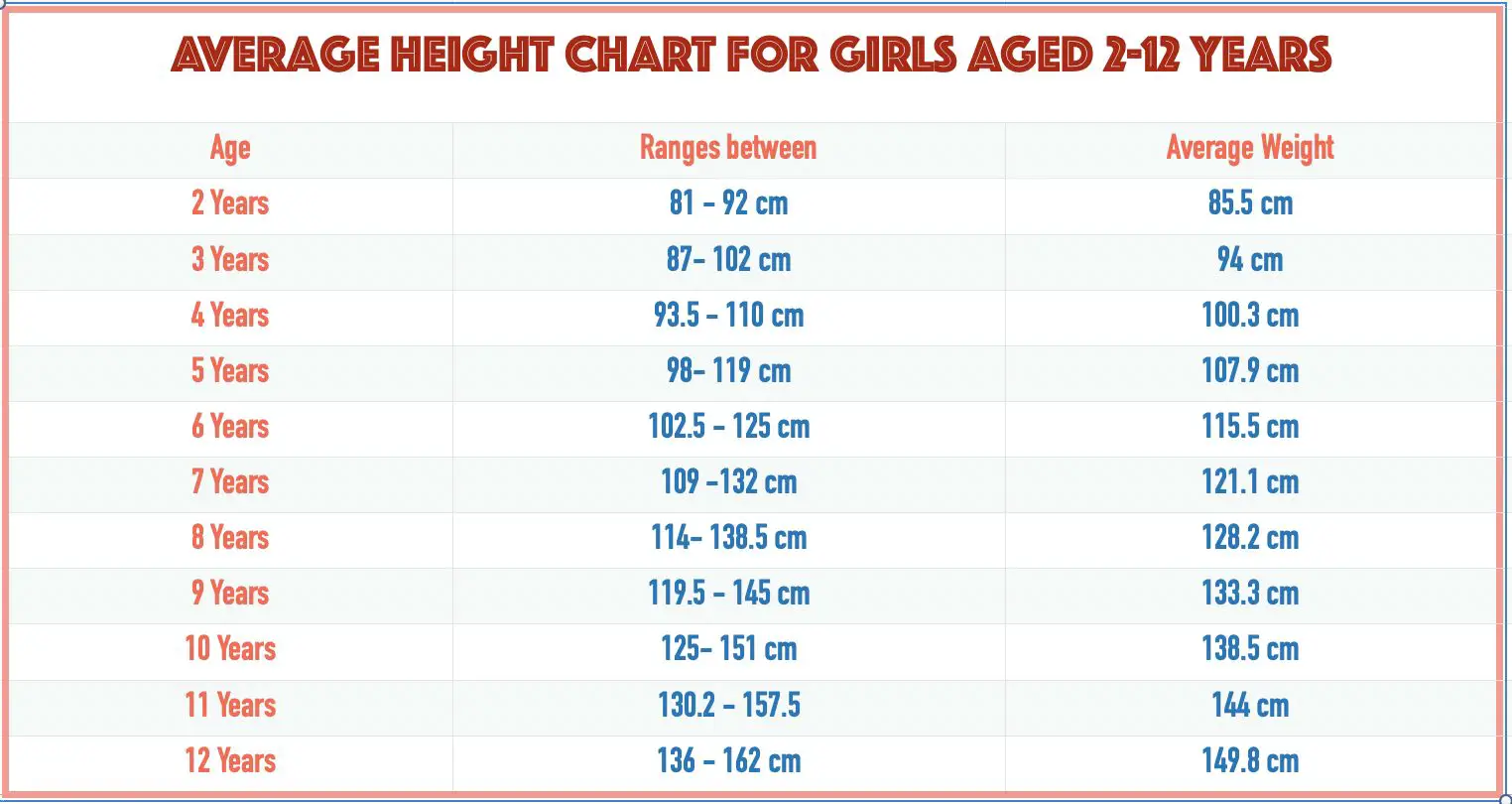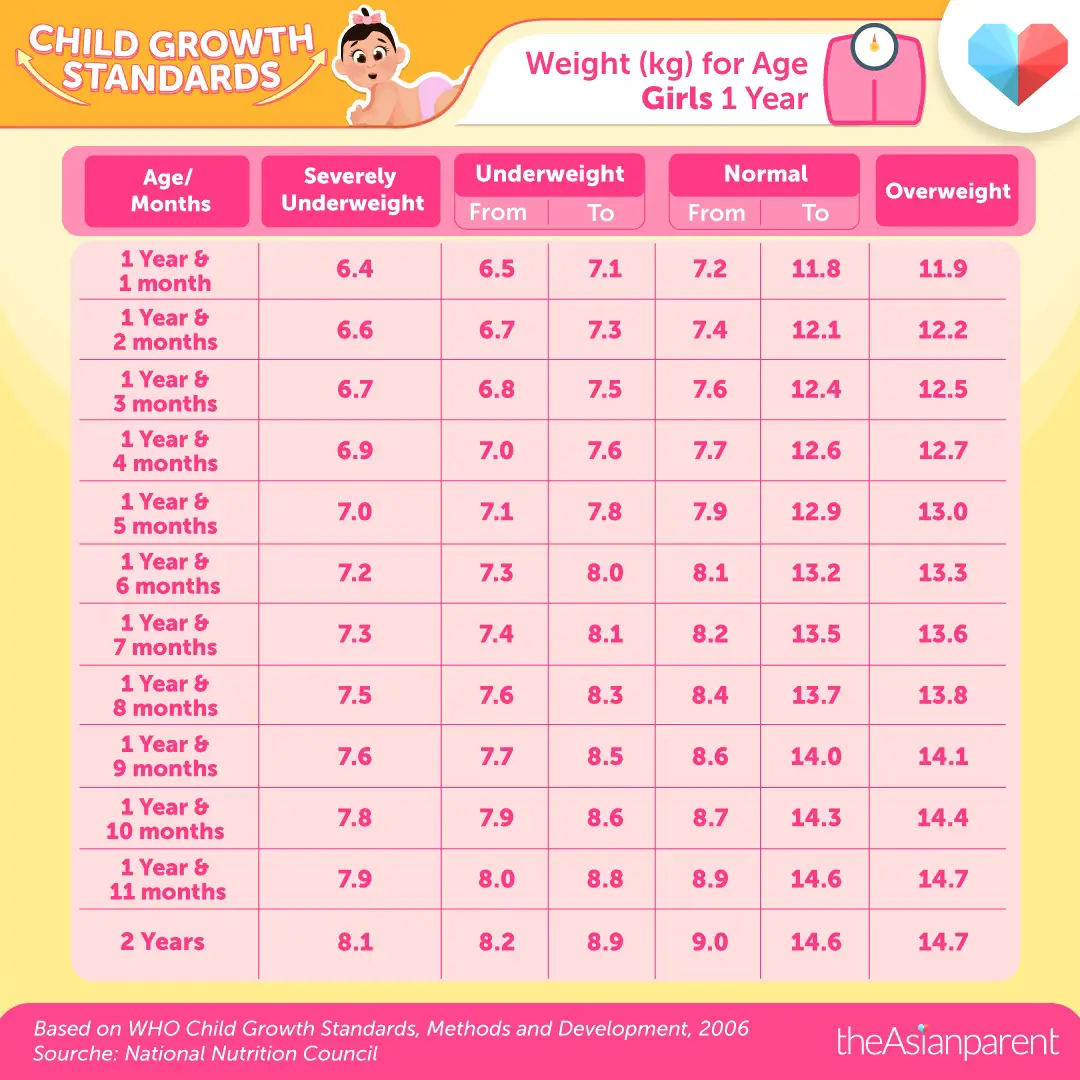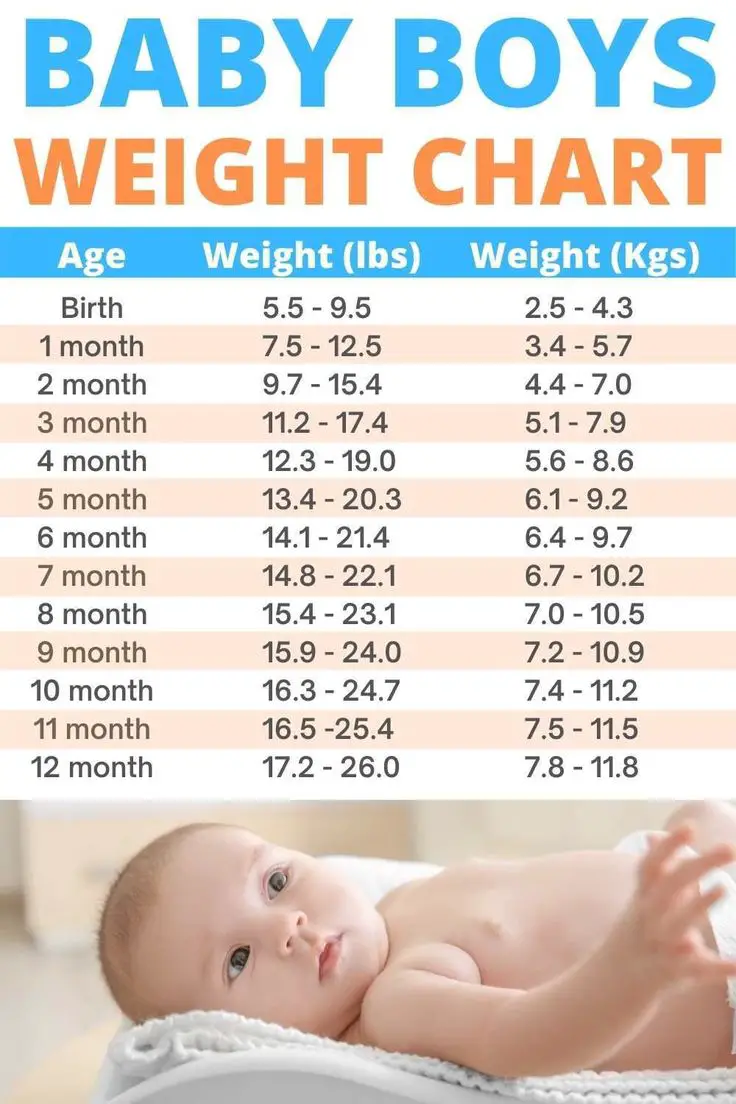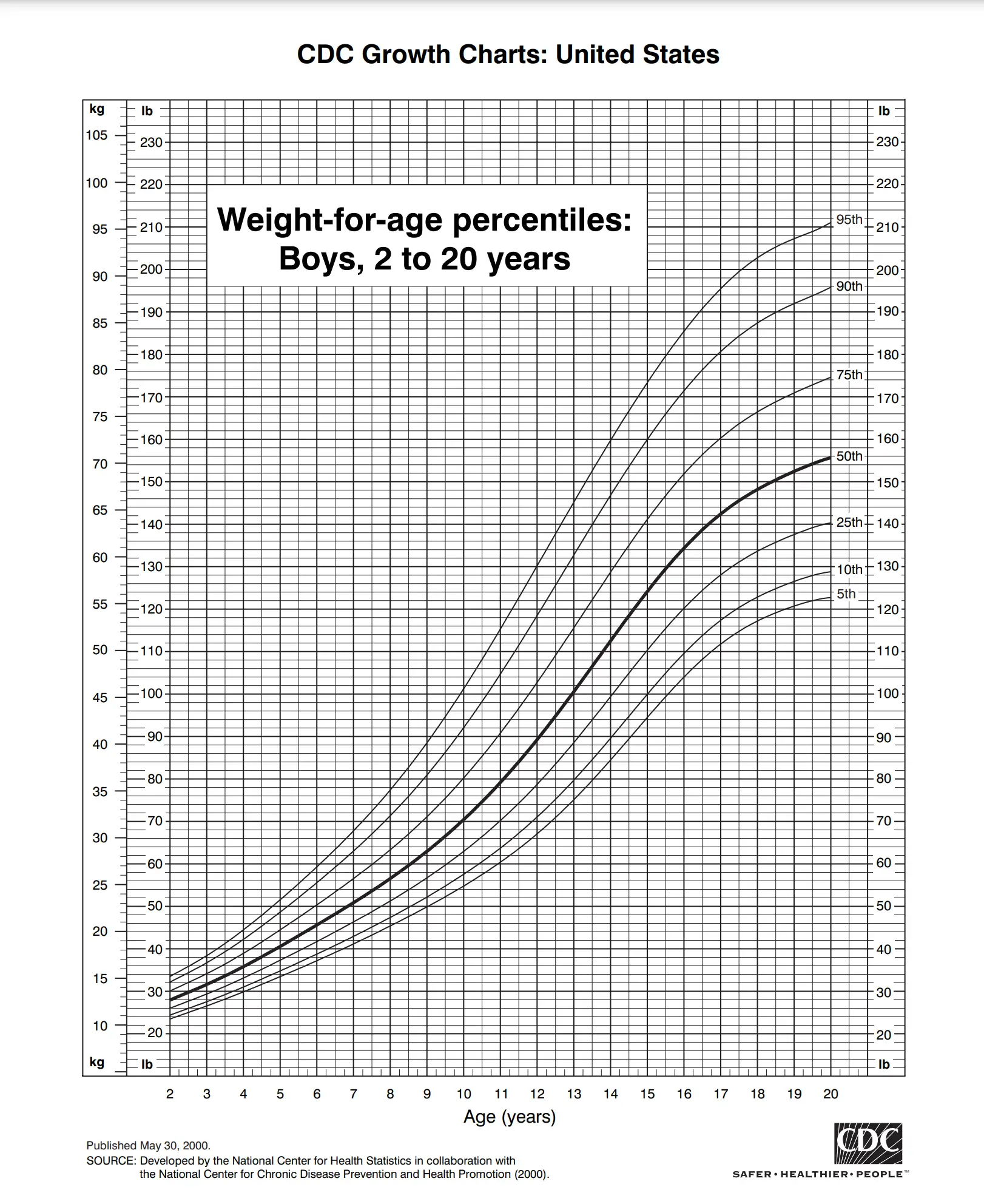The average weight for 10 individuals is an important metric to consider when assessing overall health. Generally, the average weight for 10 individuals is calculated by taking the sum of their individual weights and dividing it by 10. For adults, the typical range of average weight for 10 individuals is around 160-210 pounds. This range of weight is considered to be healthy for most adults. For children and adolescents, the average weight for 10 individuals is typically lower.
Boys and girls tend to have different average weights depending on their age and height. The average weight for 10 individuals can also be affected by lifestyle factors, such as diet and physical activity. People who are overweight or obese may have a higher average weight than those who are not. Additionally, those who are underweight may have a lower average weight. Overall, understanding the average weight for 10 individuals can provide valuable insight into the health of a group. It is important to remember that the average weight is just a guideline and that individuals may have different weights due to their individual characteristics.
9 year old average weight

The average weight for 10 year olds is around 65-85 lbs, depending on height and other factors. 9 year olds, on the other hand, typically have an average weight of around 60-80 lbs. However, while there is an average weight range, it is important to keep in mind that every child is different, and may be outside of these ranges and still be perfectly healthy. It’s important to consult with a doctor for a professional opinion on what a healthy weight for your child should be. It is also important to monitor your child’s diet and exercise habits, as this can have a major impact on their weight.
It is important to note that gaining weight too quickly can lead to health issues, just as much as if a child is significantly underweight. Eating a balanced diet rich in nutrients and vitamins is key to maintaining a healthy weight. Exercise is also important for children as they grow, as it helps strengthen muscles and bones, and also increases their energy levels. A combination of diet and exercise is the best way to ensure that a 9 year old is at a healthy weight.
How much should a 9 year old suppose to weigh?
The average weight for a 10 year old is around 70-100 pounds. Therefore, a 9 year old would be expected to weigh a bit less, typically ranging from about 57-88 pounds. Of course, every child is different, so this range should be taken as a guideline rather than a strict rule. A lower body weight can still be healthy, as long as it’s not caused by an underlying health problem. Similarly, higher body weights can be healthy too, as long as they are within the expected range for their age and body size.
It’s important to remember that gaining or losing weight quickly can be a sign of a health issue. If your 9 year old’s weight appears to be changing quickly, it’s best to talk to a doctor or nutritionist for advice, as this could indicate that something is wrong. In general, a 9 year old should have a healthy diet and exercise regularly in order to maintain a healthy body weight. Eating nutritious, balanced meals and getting plenty of physical activity is important for any child’s development. It’s important to remember that every child is unique, so a 9 year old’s weight should be assessed individually. A doctor or nutritionist should be consulted to make sure that their weight is healthy and appropriate for their age.
What is an average IQ for a 9 year old?
The average IQ for a 9 year old is typically between 85 and 115. This number is determined by measuring a child’s ability to solve problems and think critically. This differs from the average weight for 10 year olds, which is between 80 and 110 lbs. IQ tests measure cognitive abilities such as problem solving, critical thinking, and verbal and non-verbal reasoning. The average 9 year old should possess basic reasoning and problem solving skills and be able to understand complex concepts.
IQ is just one measure of intelligence, and should not be used as the sole indicator of a child’s overall intellectual ability. Factors such as creativity, social skills, and emotional intelligence should also be taken into consideration. A child’s IQ can be affected by factors such as nutrition, environment, and access to educational resources. Parents should ensure their child has a healthy diet, positive learning environment, and access to quality education. Overall, an average IQ for a 9 year old is between 85-115, but this number does not account for other important factors that contribute to a child’s intellectual development.
How to lose weight fast for 9 year olds?
Losing weight for 9 year olds can be a challenging task. As an average 10 year old, it is important to establish healthy habits to maintain a healthy weight. A healthy weight for a 9 year old is dependent upon their height and body type. A good starting point is to consult with your doctor to determine the proper weight for your height and age. Once a healthy weight is determined, reduce calorie intake.
Eating healthy foods such as fruits, vegetables, and lean proteins can help reduce calorie intake and improve weight management. Eating small meals throughout the day can help to keep hunger at bay and reduce the temptation to overeat. In addition to reducing calorie intake, increasing physical activity can significantly help with weight loss. Making time for activities such as walking, biking, running, or playing sports can help burn calories and build muscle. Finally, it is important to establish healthy habits. Limit screen time, get plenty of sleep, and drink plenty of water. These habits can help to maintain a healthy lifestyle and promote weight loss.
How tall is a normal 9 year old?
The average weight for a 10 year old is typically between 70 and 100 lbs. However, the average height for a 9 year old may differ. Generally speaking, the average height of a 9 year old ranges between 115 and 125 cm. It is important to remember that these averages may differ among different regions and population groups. It is also important to note that some 9 year olds may be taller or shorter than the average.
Some 9 year olds may be as tall as 130 cm while some may be as short as 110 cm. It is important to understand that every individual is unique and may differ from the average. Therefore, in conclusion, the average height of a 9 year old is between 115 and 125 cm, however, it is important to remember that individual height may differ from the average.
average weight 9 year old girl

An average weight 9 year old girl is usually around 3 to 4 stones in weight, which is slightly lower than the average weight for 10 year olds. This is due to the fact that 9 year olds are still growing and aren’t yet as physically mature as 10 year olds. At this age, girls should be getting plenty of exercise to help them reach a healthy weight. This includes walking or biking to school if possible, as well as taking part in recreational activities like sports or dance. Eating plenty of fruits and vegetables, as well as limiting their intake of sugary snacks, can also help them maintain a healthy weight.
It’s important to remember that there is no one-size-fits-all when it comes to weight. Each child is different and their weight should be monitored to make sure they are staying within the healthy range. Speak to your child’s doctor if you are concerned about their weight. It’s also important to remember that body shape and size can differ from one individual to another, and this should be respected. Even if someone is of average or below average weight, they may still have a healthy body. It’s important to focus on health rather than weight. In conclusion, an average weight 9 year old girl should be around 3 to 4 stones. With the right diet and exercise, they can achieve and maintain a healthy weight. If you are concerned about your child’s weight, it’s best to speak to their doctor.
What is overweight for a 9 year old girl?
A 9 year old girl is considered to be overweight if her weight is higher than the average weight for 10 year old girls. The average weight for 10 year old girls is generally considered to be around 90-100 pounds. Therefore, if a 9 year old girl weighs more than 100 pounds, she is considered to be overweight. It is important to note that individual body types and sizes can vary greatly. Therefore, it is important to take into account other factors such as height, overall body fat percentage, and other individual preferences when determining if a 9 year old girl is overweight.
Being overweight can put a person at risk for many health issues, so it is important to be aware of the potential risks and to take steps to maintain a healthy weight. Eating a balanced diet and exercising regularly can help to keep weight at a healthy level. Encouraging a 9 year old girl to be physically active, eat a variety of healthy foods, and get enough sleep can help to ensure that she remains a healthy weight and has the energy she needs to be active. It is important to note that being overweight does not necessarily mean that a 9 year old girl is unhealthy. It is important to take into account individual circumstances and determine the best course of action based on the individual’s needs and preferences.
How tall should a 9 year old girl be?
On average, a 9-year-old girl should be between 39 and 58 inches tall, depending on her height percentile. This means that the average height for a 10-year-old girl is around 4’6″ to 5’3″, with 50% of girls being taller and 50% being shorter. Generally, girls hit their growth spurt in their early teenage years, so at 9 years old, she is likely to be in the midst of her growth pattern. It’s important to remember that each child grows differently and at different rates. A 9-year-old girl may be at the higher end of the height range if she’s tall for her age, or at the lower end if she’s shorter.
At this age, girls typically weigh an average of 62 to 92 pounds, depending on their height. However, this can vary from child to child depending on their height, genetics, and overall health. It’s important to remember, though, that a healthy weight for a 9-year-old girl isn’t necessarily determined by height and age alone. A doctor or nutritionist can help evaluate your child’s weight and make sure that she’s at a healthy weight for her size and age. It’s also important to remember that a healthy weight for a 9-year-old girl doesn’t necessarily mean that she needs to be within the average height range for her age. In fact, as long as she’s of a healthy weight, she can be any height and still be considered normal.
average weight 10 year old girl

An average weight for a 10 year old girl is around 70 pounds. This is a healthy weight range for a girl of this age. A 10 year old girl should be able to maintain this weight with regular exercise and a balanced diet. It is important to stay within the healthy range of weights for age and size. If a 10 year old girl is overweight, she may face a number of health risks such as high blood pressure, type 2 diabetes, and even early onset of puberty.
If a 10 year old girl is underweight, this can also pose health risks. Eating a balanced diet and getting regular physical activity are important in order to maintain a healthy weight. Monitoring weight is important for a 10 year old girl’s health. It is important for parents and healthcare providers to keep track of her weight and height to ensure she is developing correctly. It is not only important to maintain a healthy weight for a 10 year old girl, but also to have a positive body image. She should be encouraged to eat healthy foods and stay fit in order to reach her optimal weight and health.
How tall should a 10 year old girl be?
The average height for a 10 year old girl is about 54.5 inches. This is the 50th percentile for the age group, meaning that about half of all 10 year old girls will be taller and half will be shorter. The average weight for a 10 year old girl is about 81.6 pounds. This is the 50th percentile for the age group, meaning that about half of all 10 year old girls will be heavier and half will be lighter. Generally speaking, the taller the person, the more they will weigh.
So a 10 year old girl who is tall for her age might weigh more than 81.6 pounds, while a shorter 10 year old girl might weigh less. It’s important to remember that there is a wide range of normal and healthy sizes for 10 year old girls. As long as a child is eating a healthy diet and getting enough exercise, their height and weight should fall within the normal range for their age. Overall, 10 year old girls come in many shapes and sizes, and there’s no one “right” size for any individual. Height and weight should be assessed in the context of the whole person and their overall health.
How much should a ten year old girl weigh?
The average weight for a ten year old girl depends on several factors, including height, body frame size, and body composition. Generally, the average weight range for a ten year old girl is between 70 and 100 pounds. Height can play a major factor in determining a child’s ideal weight. Taller girls tend to weigh more, so the weight for a tall ten year old girl may be at the higher end of the range. Conversely, a shorter girl may weigh closer to the lower end of the range.
Body frame size also helps determine the ideal weight for a ten year old girl. A girl with a larger frame may be slightly heavier than a girl with a smaller frame. Body composition is also important in determining average weight for a ten year old girl. A girl with more muscle mass may weigh more than a girl with less muscle mass, even if they are the same height and frame size. Ultimately, there is no one size fits all answer when it comes to the average weight for a ten year old girl. However, the general range is between 70 and 100 pounds.
How much should A10 year old girl weigh?
The average weight for a 10-year-old girl is usually between 62 and 84 pounds, depending on their height and body frame. Generally, girls at this age should have some body fat, which helps them to maintain a healthy body weight. A 10-year-old girl should aim to have a body mass index (BMI) between 17 and 24. A BMI below 17 can be considered underweight, and a BMI above 24 can be considered overweight. It is important to note that weight is only one part of a healthy lifestyle.
Eating healthy, getting enough sleep and exercise, and building healthy habits are all important to a 10-year-old’s wellbeing. When it comes to weight, it is important to remember that it is not a number that defines a person’s health. Other factors, such as diet, exercise, and lifestyle, are all important. For a 10-year-old girl, a healthy weight is one that is based on her individual body size and shape. A doctor or nutritionist can provide further advice on how to maintain a healthy weight.
What is the average weight and height for 10 year old?
The average weight for a 10-year-old can vary greatly based on several factors such as gender, height, and overall body type. Generally speaking, boys tend to be heavier than girls of the same age. The average weight for a 10-year-old boy is around 55.5 pounds, while the average weight for a 10-year-old girl is around 54.5 pounds. The average height for a 10-year-old boy is 54.5 inches, while the average height for a 10-year-old girl is 53.7 inches. It is important to remember that these are general averages, and individual children can naturally vary in weight and height according to their genetics and lifestyle. If you are concerned about the weight or height of your 10-year-old, it is best to consult a doctor to ensure that your child is developing healthily.
how much should a 4 year old weigh

An average 10 year old should weigh between 80 and 135 pounds, depending on a variety of factors such as their height, gender and overall body type. However, for a 4 year old, the average weight range is considerably lower. According to the CDC, the average weight for a 4 year old should be between 22 and 42 pounds. It is important to note that children do not all grow at the same rate. Some children may be heavier or lighter than the average depending on genetics, diet, and activity level.
Things like health and lifestyle can also play a role in a child’s weight. A healthy balanced diet and regular physical activity can help maintain a healthy weight. It is also important to recognize that any sudden changes in weight, either up or down, should be monitored and discussed with a healthcare professional. It is important to encourage healthy weight gain in children and to monitor their weight as they grow.
What is overweight for a 4 year old?
An average weight for a 4 year old is usually around 45 lbs. However, if a 4 year old is around 55 lbs or more, they may be considered overweight. This is because that weight would exceed the average weight for a 10 year old, which is around 90 lbs. Having a child who is overweight can lead to a variety of health issues, such as diabetes and heart disease. Therefore, it is important to be aware of your child’s weight and help them to stay active and eat healthy foods.
Parents should monitor their child’s weight and consult with their doctor if they feel their child is overweight. A doctor will be able to assess the child’s BMI and overall health to determine if they are at risk of any health issues. It is important to ensure that a 4 year old is eating nutritious foods and exercising regularly. Eating a balanced diet and getting enough physical activity can help to keep a child’s weight under control and can also prevent them from developing any serious health problems. Keeping track of a 4 year old’s weight is a great way to ensure they stay healthy and happy. Monitoring their weight and setting healthy habits early on can help to prevent any health issues in the future.
How do I know if my 4 year old is overweight?
When it comes to determining whether your 4 year old is overweight, it’s important to consider the average weight for 10 year olds. Generally, children who are overweight for their age and height are above the 95th percentile for weight. To find out your child’s percentile, you can use the Centers for Disease Control and Prevention’s BMI for age calculator. If your 4 year old’s BMI is in the 85th to 94th percentile, they are considered to be at risk for being overweight. If their BMI is in the 95th percentile or higher, they are considered to be overweight.
It’s important to remember that BMI is only one indicator, so additional factors should be taken into consideration. Some medical conditions can cause a child to appear overweight even if they are not. It’s also important to consider how your child’s weight has been trending over time. If your child’s weight has been steadily increasing, it indicates that they are at risk for being overweight. If you’re concerned about your 4 year old’s weight, it’s important to speak with your child’s doctor. They can help you determine if your child is at risk for being overweight and discuss ways to help prevent or manage unhealthy weight gain.
When should I worry about my 4 year old weight?
When it comes to a child’s weight, you should always keep an eye on it. This is especially true for a 4 year old, as their weight should be closely monitored to ensure they are growing and developing properly. The average weight for a 4 year old can vary depending on height, gender, and other factors. Generally, however, a healthy weight for a 4 year old should be between 24-34 pounds for boys and 22-32 pounds for girls. If your 4 year old is significantly below or above the average weight range, it’s important to consult a doctor or pediatrician.
They can check for any underlying health issues or other factors that may be causing a change in weight. It’s also important to monitor your 4 year old’s diet and activity levels. Make sure they are getting enough nutritious foods and plenty of exercise. Eating healthy and staying active can help your 4 year old develop properly and reach a healthy weight. If you’re concerned about your 4 year old’s weight, don’t hesitate to seek professional help. A doctor or nutritionist can provide guidance and support to help your child achieve a healthy weight.
How do I know if my 4-year-old is overweight?
As children grow and develop, their weight can vary. It can be difficult to determine if your 4-year-old is overweight or not. Generally speaking, the average weight for a 10-year-old is around 70 lbs, so it can be assumed that a 4-year-old should weigh significantly less. To assess if your child is overweight, you can use the body mass index (BMI) calculation. This will give you a number that will help you determine if your child is in a healthy weight range.
You can also look at your child’s growth chart. These charts are used to measure your child’s height and weight and can help you assess if they are in the healthy range. It is also important to consider your child’s lifestyle. If your 4-year-old is eating healthy and exercising regularly, then their weight should be in a healthy range. However, if they are eating a lot of junk food or not being active, then it is possible that they are overweight. The best thing to do is to speak to your pediatrician about your concerns. They can assess your child’s weight and offer advice on how to help them reach a healthy weight. If needed, they can also refer you to a nutritionist or dietician who can provide additional support and guidance. Ultimately, your child’s health and wellbeing is the most important thing. Monitor their weight closely and don’t hesitate to seek help if you think that your 4-year-old may be overweight.
How do I know if my 4-year-old is underweight?
It is important to understand the average weight for a 4-year-old in order to determine whether or not your child is underweight. Generally, the average weight for a 4-year-old is between 32 and 45 pounds. If your child is below this range, it could be an indication that he or she is underweight. It is also important to consider height in addition to weight when evaluating if a 4-year-old is underweight. Most 4-year-olds measure between 3 feet 1 inch and 3 feet 10 inches in height.
If your 4-year-old is shorter or slightly shorter than the average, they may be underweight. Another way to determine if your 4-year-old is underweight is to check their body mass index (BMI). BMI is a measure of body fat based on height and weight. Generally, a BMI below the 5th percentile is considered underweight. If you are still unsure whether or not your 4-year-old is underweight, it is best to consult a trusted health professional. They can answer any questions you may have and help you make an informed decision about your child’s health. Remember, it is important to be aware of your 4-year-old’s weight in order to make sure they are healthy and in a normal range. If you are concerned about their weight, talk to a doctor to determine the best course of action.
What is the average weight for a 4 year old?
The average weight for a 4 year old can be compared to the average weight for a 10 year old. Generally, a 10 year old should weigh more than a 4 year old due to physiological factors such as age and height. On average, a 10 year old should weigh around 73 pounds whereas a 4 year old should weigh around 41 pounds. However, this can vary depending on various factors such as gender, height, and general health. It is important to remember that these are only general estimates and the actual weight of a 4 year old or 10 year old can vary depending on their body type, nutrition, and activity levels.
It is important to monitor your child’s weight to ensure they are developing healthily. If you have concerns about their weight, consult your doctor for assistance. In general, the average weight for a 4 year old is significantly lower than that of a 10 year old, due to their age and difference in body composition.
What is the average height of a 4 – year – old?
The average weight for 10-year-olds is typically around 100 pounds, depending on their sex, size, and other factors. When it comes to younger children, the average height of a four-year-old is usually around 40 inches (101 cm). This can also differ depending on sex, genetics, and other factors. At four years old, the average child is usually able to stand on their own, and their height is mostly due to their growing bones. The average four-year-old is also able to understand and communicate better, as well as being physically more coordinated.
Although each individual may vary in height, the average four-year-old will likely be in the range of 39 to 41 inches tall. As the child gets older, they will grow taller and heavier, and the average height and weight will vary. In conclusion, the average height of a four-year-old is around 40 inches (101 cm). This number can vary depending on sex, genetics, and other factors, but it is a good starting point for estimating the size of a four-year-old child.
What is the average height and weight for a school-age child?
The average height and weight of a school-age child varies depending on their age and gender. Generally, children at age 10 are around 54–58 inches in height and weigh between 68–102 pounds. Boys tend to be a bit taller and heavier than girls at this age. Boys usually have an average height of 56–60 inches and an average weight of 80–115 pounds. Girls, on the other hand, tend to have an average height of 54–58 inches and an average weight of 68–102 pounds.
Height and weight of a child is dependent on their genetics, nutrition, and activity level. If a child is underweight or overweight, it is important to talk to a doctor about it as this could be due to an underlying medical condition. It is important to know that the average height and weight of a 10-year-old child is just an estimate. All children grow and develop at different rates and it is normal for some children to be taller, shorter, heavier, or lighter than their peers. It is important to monitor your child’s weight and height and consult a doctor if you have any concerns. A healthy lifestyle, including physical activity and a balanced diet, is important for your child’s health and well-being.
What is physical development of a 4 year old?
Physical development of a 4 year old child involves a wide range of changes. Generally, they grow taller, become stronger, and develop better coordination and balance. They are usually able to run and jump, as well as engage in more complex activities such as picking up small objects, drawing, and building structures with blocks. Additionally, their speech and language skills improve significantly. On average, 4 year olds typically weigh between about 40 to 50 pounds, depending on their height and build.
10 year olds, on the other hand, typically weigh about 80 to 115 pounds. 4 year olds tend to grow about 2 to 3 inches every year, and double their birth weight by the time they turn five. 10 year olds typically have an average height of between 4’5” and 4’10”, and an average weight of between 75 and 115 pounds. Overall, the physical development of a 4 year old is marked by significant growth and development in all areas, while 10 year olds are typically taller and heavier. By monitoring their growth and nutrition, parents can ensure that their child’s physical development is progressing at a healthy rate.
what is the average weight of a 4 year old

The average weight of a 4 year old child is typically between 36 and 46 pounds. This is slightly less than the average weight of a 10 year old child, which is typically between 80 and 115 pounds. At 4 years old, children typically begin to gain weight more quickly as they grow. This means that the average weight of a 4 year old can increase significantly in a short period of time. However, it is important to remember that a child’s weight can vary significantly from the average weight for their age.
This is due to a variety of factors such as genetics, diet, and activity level. It is important for parents to monitor their child’s weight and to ensure that their child is growing and developing at a healthy rate. Regular checkups with a doctor are key to keeping your child’s health in check. It is also important to note that a child’s weight should not be used as an indicator of overall health. Factors like height, body composition, and BMI are all important to consider when assessing a child’s health.
What height should a 4 year old be?
The average height for a 4 year old child is around 42 inches (107 cm). This is slightly higher than the average height of a 3 year old which is around 40 inches (102 cm). At the same time, the average weight for a 4 year old is between 30 and 50 pounds (14 to 23 kg). This is slightly heavier than the average weight for a 10 year old, which is between 50 and 80 pounds (23 to 36 kg). It is important to remember that every child grows and develops at their own rate.
While a 4 year old may be at the average height of 42 inches, there may be another 4 year old who is shorter or taller. It is also important to keep in mind that a child’s height can be influenced by many factors such as genetics and nutrition. A healthy diet and plenty of physical activity can help a child gain the appropriate amount of height. Finally, it is important to remember that a child’s height is just one factor of their overall health and development. As they age, children should be monitored to ensure they are meeting the appropriate milestones for their age.
How to help my 4 year old lose weight?
One of the best ways to help your 4 year old lose weight is to ensure that they are eating healthy meals and snacks. Incorporate more whole grains, fruits, and vegetables into their diet, and limit fats and sugars. Encourage them to drink plenty of water, and limit sugary beverages. Additionally, it is important to make sure your 4 year old is getting plenty of exercise. This can be done through outdoor activities such as playing outside, biking, or swimming.
You can also opt for indoor activities such as dancing and playing games. It is also important to ensure that your 4 year old is getting enough sleep. This will help ensure that they are energized and ready for the day. Finally, it is important to support and encourage your child. This can be done by rewarding them for healthy behaviors, and showing them that you are proud of them. With these tips, you can help your 4 year old reach a healthy weight.
What is the average bedtime of a 4 year old?
The average bedtime of a 4 year old typically falls between 7-9 PM. This is because 4 year olds need an adequate amount of sleep to help their bodies and minds develop properly. For comparison, the average weight for a 10 year old is typically between 90-115lbs. This is an important milestone as it marks a significant growth spurt in the development of a child between the ages of 9-10 years old. During this time, it is important for a 10 year old to get enough rest in order to stay healthy and active. As such, the ideal bedtime for a 10 year old would be around 8-9 PM. It is important that both 4 year old and 10 year olds get a sufficient amount of sleep each night, as this helps them grow and develop both mentally and physically.
What is the average temperature for a 4 year old?
The average weight for 10-year-olds is typically between 70-100 pounds. This varies depending on factors such as gender, height, and body type. On the other hand, the average temperature for a 4-year-old is much different. Generally, the average body temperature for a 4-year-old is around 97.7В°F (36.5В°C). However, it is important to note that different individuals may have slightly different average body temperatures.
It is also important to understand that body temperature can vary throughout the day. For instance, it is normal for a 4-year-old’s temperature to be slightly lower in the morning and slightly higher in the evening. While the average body temperature of a 4-year-old can give you a general idea of what is normal, it is important to keep in mind that each individual’s temperature may vary. It is also important to keep an eye on any drastic changes in body temperature, as this could be a sign of an illness or infection. Overall, the average temperature for a 4-year-old is around 97.7В°F (36.5В°C). However, it is important to note that this may vary slightly from individual to individual. Additionally, it is important to keep an eye on sudden changes in body temperature, as this could indicate a medical issue.
how much does the average 4 year old boy weigh

The average weight for 10 year olds is about 101.3 pounds for boys and 94.3 pounds for girls. For 4 year olds, the average weight is much lower. Boys tend to weigh around 33.5 pounds and girls tend to weigh around 31.8 pounds. However, this is just an average and individual children may weigh more or less than this. It is important to remember that children do not typically gain weight at the same rate.
Height and weight are two different measurements and the ratio between the two is important for determining the health of a child. Parents should keep track of their child’s weight and height to ensure that they are growing in a healthy manner. It is important to remember that healthy growth is not always consistent and that every child develops differently.
What is the normal weight for a 4 year old male?
The average weight for a 4 year old male is typically between 30 and 36 pounds. This number is slightly lower than the average weight for 10 year olds, which is generally between 50 and 75 pounds. Height and stature are important measurements for overall health, but it is important to remember that every child can vary in size. In addition, the amount of weight a child gains over time depends on their individual lifestyle and eating habits. It is recommended that a 4 year old male should consume a balanced diet including fruits, vegetables, and proteins.
For children of this age, it is important to maintain a healthy level of physical activity as well, which will help them keep their weight in a healthy range. It is important to remember that the average weight for a 4 year old may vary depending on the individual. It is important to talk to a healthcare professional if you are concerned about your child’s weight. This will ensure that your child is getting the proper nutrition they need to reach their full potential.
What is the best toy for a 4 year old?
The best toy for a four year old depends on the child’s individual interests and abilities. Generally, four year olds enjoy building and imaginative play. Sturdy blocks, a play kitchen, dress-up clothes, and simple drawing and coloring toys are usually good choices. When choosing a toy, it’s important to make sure it is appropriate for a four year old in terms of size, weight, and complexity. It should also be safe, so avoid anything with small parts or sharp edges.
The average weight for a 10 year old is around 100 lbs, so aim for toys that are lightweight, but sturdy enough to withstand active play. Creative activities like painting, drawing, and sculpting can be great for a four year old. Board games and puzzles can also be fun, but make sure they have pieces that are large enough for smaller hands. Four year olds can also enjoy activities like playing with clay, action figures, and musical instruments. Books are also an important part of learning and can be a great way to encourage a child’s natural curiosity. Four year olds can often benefit from books that provide educational information and support early literacy skills. Look for books that are age-appropriate and written in simple language. No matter what kind of toy you choose, the most important thing is that it’s fun and engaging. Look for toys that will help the child learn, explore, and express themselves. A good toy should also provide an opportunity to interact and play with other children.
average weight of a 4 year old male

The average weight of a 4 year old male is approximately 24.8 pounds. This is roughly 10% of the average weight for a 10 year old, which is around 108 pounds. Generally, the higher a person’s age, the higher their weight. This means that a 10 year old is likely to weigh more than a 4 year old, as they have grown more. However, even within the same age group, individuals can have different weights.
Some may be heavier or lighter than the average. Growth and development patterns can vary between individuals and can depend on the diet and activity of the child. It is important to note that it is normal for a child’s weight to fluctuate as they grow. A 4 year old may experience a few months of higher or lower weight, but this should not be cause for concern unless it is persistent. Parents should also ensure that their child is eating a balanced diet with exercise to ensure healthy growth and development. Weights can also differ between males and females, depending on their body composition. On average, boys will be heavier than girls at the same age. Additionally, children of different ethnic backgrounds may have different weights, due to genetic and environmental factors. Overall, the average weight of a 4 year old male is 24.8 pounds, which is lower than the average weight of a 10 year old. However, individual weight can vary, so it is important to monitor and assess the growth of your child to ensure it is healthy.
What is the ideal weight for a 6 3 male?
The ideal weight for a 6 3 male depends on a few factors such as body type and age. Generally, an average weight for a 10 year old 6 3 male is roughly between 75 and 92 pounds. As they get older, the ideal weight range increases. This is especially true after they hit adolescence, as they are in a growth spurt, and their body composition also changes. As an adult, the ideal weight for a 6 3 male can range anywhere from 130 to 167 pounds.
These figures are based on the body mass index (BMI) which takes into account both height and weight. Again, this is just an average range and may vary slightly depending on the individual’s body type. It is important to note that ideal weight ranges are just estimations and should not be taken as absolute numbers. Everyone’s body is different and individual health and fitness needs should be discussed with a doctor or other healthcare professional.
How much should a man who is 5 10 weigh?
Generally speaking, the average weight for a man who is 5 foot 10 inches tall is around 175 pounds. However, this is just an average and there is no one-size-fits-all answer to the question of what a man of this height should weigh. It is important to remember that everyone’s body is different and no two individuals are the same. The ideal weight for an individual can vary depending on their body composition and muscle to fat ratio. The ideal weight range for a 5 foot 10 inch man can be anywhere between 130 pounds to 230 pounds.
It is important to keep in mind that an individual’s ideal weight should be determined by their own health goals, lifestyle and physical activity level. For instance, someone who is more active and exercises regularly may be able to maintain a higher weight than someone who is sedentary. Another factor to consider when determining a healthy weight range for a 5 foot 10 inch man is age. As a person ages, their muscle mass and bone density tend to decrease, which can lead to a decrease in their ideal weight. Ultimately, it is important to focus on maintaining an overall healthy lifestyle rather than worrying about what the number on the scale is. Eating a balanced diet and exercising regularly are essential in maintaining a healthy weight, no matter what height a person is.
average weight for 5yearold boy

The average weight for a 5 year old boy is typically between 38 and 58 pounds. This is significantly lower than the average weight for a 10 year old, which is typically between 80 and 130 pounds. Generally, children under 10 years old should double their weight from when they were 2 years old. A 5 year old boy can be considered underweight if he is below the 5th percentile of the recommended weight range, and overweight if he is above the 95th percentile. To determine if a 5 year old is underweight or overweight, it’s important to measure their Body Mass Index (BMI).
Nutrition is an important factor in determining a child’s weight. A 5 year old boy should be consuming a healthy mix of carbohydrates, proteins, fats, vitamins and minerals. Physical activity is important in maintaining healthy weight as well. The average weight for a 5 year old boy is largely impacted by their genetic makeup. However, it is also important to note that children’s weights can fluctuate depending on the season and their growth rates. It is important for parents to understand the average weight for a 5 year old boy, as well as how to ensure their child’s growth and development is healthy.
What is the normal height and weight of a child?
Average weight for 10 year old children is generally around 50-90 pounds. Height at this age can vary greatly, but is usually between 4’6” and 5’2”. Generally, boys tend to be slightly heavier and taller than girls of the same age. Growth is different for each child, however certain patterns are typical among children in different age groups. In general, 10 year olds are in the transitional stage between childhood and adolescence.
As such, the increase in height and decrease in weight that occurs during puberty has not yet begun. At 10 years of age, children are still growing and developing. Parents should regularly monitor their child’s growth to ensure that they are growing at a healthy rate. For any concerns, parents should consult a pediatrician who can provide more detailed information about their child’s growth. Most 10-year-olds will reach their full height and weight by the time they are 16 years old. However, with proper nutrition and exercise, children can stay healthy and reach their full potential in terms of height and weight. In conclusion, a normal height and weight for a 10-year-old child is usually between 4’6” and 5’2” and 50-90 pounds, although individual growth patterns may vary. It is important for parents to monitor their child’s growth over time and consult a doctor if they have any concerns.
What is the average weight of a 6 – year – old?
The average weight of a 6-year-old is typically much lower than the average weight for 10-year-olds. On average, a 6-year-old weighs around 50 pounds, while a 10-year-old is usually closer to 80 pounds. This means that a 6-year-old weighs about 38% less than a 10-year-old. Of course, this can vary depending on the child’s size and weight, but it is a general guideline for average weights at different age ranges. At 6 years old, children’s growth rates slow down, so the rate of weight gain is less than it was during the first year of life.
A 6-year-old should gain about 1-2 pounds per year, so an average increase of 5-10 pounds over the course of 6 years is typical. It’s important to remember that weight is only one indication of health, and there are many factors that can affect a child’s weight. For example, diet, activity level, and genetics can all play a role in how much a child weighs. It’s also important to note that weight can vary widely between individuals. Some children may weigh more than the average and some may weigh less. Ultimately, the most important thing is that a child is healthy and growing at a healthy rate.
What is the average height of teenage boys?
The average height of teenage boys is typically between 5ft 4in and 5ft 8in. However, it is important to note that there is no “one size fits all” when it comes to height. Each individual’s height will vary depending on the combination of their genetic inheritance, the amount of physical activity they get, and their nutrition. When looking at the average weight for 10 year old boys, it is important to consider their height. The average weight for a 10 year old boy is between 55 and 75 pounds.
While this is a general average, it is important to keep in mind that the weight can vary significantly depending on the boy’s height. In general, taller boys tend to be heavier than their shorter counterparts. This is because taller boys are typically of a higher BMI and require more energy to keep their bodies functioning. Additionally, taller boys may also have bigger appetites, which can contribute to their higher weight. It is important to remember that boys of the same age may be very different heights. Therefore, it is important to consider factors such as genetics, physical activity, and nutrition when determining the average height for a specific age group. By doing this, parents can have a better understanding of what is considered healthy for their sons. Overall, the average height of teenage boys is typically between 5ft 4in and 5ft 8in. It is important to note that while this is a general average, there is still a lot of variation depending on the individual’s individual circumstances. It is important to consider the average weight for 10 year old boys when looking at their height and to remember that different boys may have very different heights.
How much should my Baby weigh?
The average weight of a 10-year-old baby is around 27.7 lbs. This may vary slightly depending on the size and build of the baby. Generally, healthy babies tend to be in the range of 28-31 lbs. However, it is important to remember that ideal weight for a baby varies from one individual to another and is not necessarily linked to age. It is important to consult your doctor if you are concerned about your baby’s weight.
Your doctor will be able to assess your baby’s growth and development and provide you with more detailed information about the ideal weight for your particular baby. You can also use a tracking chart to help you track your baby’s growth. This chart can also be used to compare your baby’s growth with the World Health Organization’s (WHO) growth charts. When monitoring your baby’s weight, it is important to pay close attention to changes in the baby’s weight over time. For example, if your baby’s weight is not progressing as expected, it may be a sign of a health issue. If this is the case, you should seek medical advice. It is important to keep in mind that there is no one right answer as to how much your baby should weigh. Every baby is different and as such, their ideal weight will vary. If you are concerned about your baby’s weight, it is important to talk to your doctor to get the most accurate assessment.







